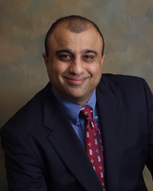Shaniya Peterson was jumping rope with her two little girls the day after Thanksgiving when she began feeling severe pain in her back, jaw and back of the head. She lay down thinking she’d overdone it in the cold, but the pain didn’t go away. Then she got what she thought was heartburn from eating too much turkey, so she took an antacid. But the pain got worse. Finally, when the pain became overwhelming, Peterson headed to the emergency department at nearby Sutter Delta Medical Center in Antioch. At Sutter Delta, to her shock, doctors diagnosed the 30-year-old with a heart attack and arranged for her immediate transfer to Sutter’s Alta Bates Summit Medical Center in Oakland for emergency coronary artery bypass graft surgery (CABG).

Shaniya Peterson
“That was very scary because when I hear about people having heart attacks, it’s older people,” Peterson said. “I’ve literally never heard of anyone in my life my age or younger having a heart attack.”
Oscar Nunez was busy working at his job at T-Mobile last spring when he felt chest pain and anxiety which he attributed to the six espressos he’d downed that morning. The then-39-year-old shrugged off the pain and even joined his coworkers for lunch. But the pain and feeling of uneasiness continued so when his jaw locked at the restaurant, he realized something was really wrong. Nunez went home and asked his wife to drive him to the emergency department at Alta Bates Summit in Oakland where doctors determined he needed an emergency CABG. The Oakland resident says he was stunned by the sudden turn of events because just a couple of days earlier he and his wife had gone on a long hike.
Read more in the San Francisco Chronicle: Heart attacks are killing more young people. It’s not just COVID
Dr. Junaid Khan, a cardiothoracic surgeon and director of Cardiovascular Services at Alta Bates Summit Medical Center in Oakland, says Peterson and Nunez’s cases are part of an alarming trend, “My colleagues and I at Alta Bates Summit have performed more CABG surgery for patients under 40 in the last two years than the previous 10 years combined.”

Junaid Khan, MD, director of Cardiovascular Surgery at Sutter’s Alta Bates Summit Medical Center
“That’s not subtle,” says Dr. Khan, “It is a pretty significant and dramatic change we are seeing.”
The increased need for CABG surgeries at Alta Bates Summit is underscored by a recent study that found heart attack deaths in the U.S. have increased 30% for adults age 25 to 44, compared with 20% for adults 45 to 64, and 14% for adults 65 and older over the course of the pandemic.
So why are young people continuing to suffer increased rates of death from heart attack? Dr. Khan believes it’s complicated but, “Some of the bad habits people developed during the pandemic are persisting post pandemic. It also may have something to do with the underlying issues that cause heart attacks, including diabetes, obesity, lack of exercise, high blood pressure, high cholesterol, and tobacco smoking.”
Dr. Khan notes many young people seem to delay care because they don’t think a young person can have a heart attack, “My message is just because you are young doesn’t mean you can’t have a heart attack.”
Dr. Khan recommends people young and old follow The American Heart Association’s prescription to reduce their risk of heart attack called ‘Life’s Simple 7’ which include:
1. Stop smoking and vaping
2. Eat better
3. Get active
4. Lose weight
5. Manage blood pressure
6. Control cholesterol
7. Reduce blood sugar
Know the warning signs of a heart attack. According to the American Heart Association, the most common heart attack symptom for men and women is chest pain or discomfort. But women may experience other symptoms such as shortness of breath, nausea/vomiting, and back or jaw pain.
Today, both Peterson and Nunez continue to recover from their ordeals. Both say they are sharing their stories in hopes of making other young adults aware of the need to take better care of themselves and to seek medical attention immediately if something doesn’t feel right.
“I realize now how important it is to take care of your health,” Peterson says. “I’m grateful I’m able to do things again.”
Note: This content is not intended to be a substitute for professional medical advice, diagnosis or treatment. Always seek the advice of your physician or other qualified health provider with any questions you may have regarding a medical condition. Never disregard professional medical advice or delay in seeking it because of something you have read on this website.





